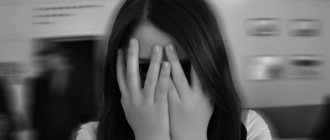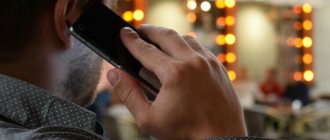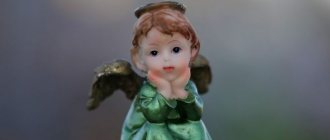What is phagophobia
The name literally translates as “fear of eating.” Phagophobia is an irrational, panicky fear of swallowing something. Popular shapes:
- fear of swallowing food;
- fear of swallowing saliva;
- fear of swallowing pills.
A person is afraid of experiencing unpleasant sensations, choking and dying. There are different types of fear of swallowing. For example, some people are afraid only of solid food, while others are afraid of drinking water, still others are afraid of choking when swallowing pills, and still others are afraid of absolutely everything related to swallowing.
Note! Phagophobia can be confused with anorexia. In both cases, the person is afraid to eat, refuses food, and loses weight. But in the first case, this is associated with the fear of choking, and in the second case, with the fear of gaining weight.
Causes
Pathological fear of gaining weight even a little (especially for girls) can develop into sitophobia
Fear of food most often develops in childhood. The cause is any traumatic episode associated with food intake. For example, in some families, parents prohibit talking at the table during meals. The child may disobey, as a result the parent will raise his voice, and the baby may choke from fear. At this time, a negative attitude is formed, and a connection between food and fear of suffocation appears in the child’s brain.
Another reason for the fear of food in children is parents who force the child to eat unloved foods. For example, a child does not want to eat soup, and the parent forbids him to get up from the table until the plate is empty. As a result, the baby can sit for several hours at an unloved dish, feeling resentful and afraid of disobeying. This is a typical traumatic situation that can cause the development of a dangerous phobia.
In adulthood, the fear of food is most often associated with the fear of poisoning. This occurs after a person has eaten a spoiled product that has caused a gastrointestinal illness. As a rule, fear of products of the same group develops in people prone to hypochondria.
Fear of swallowing food in children and adults is often due to negative experiences in the past. If a person has ever choked, and there was no one nearby who would come to help in a timely manner, there is a high probability of developing a phobia.
Another cause of this disorder is various eating disorders. Most often, sitophobia is one of the symptoms of anorexia. A person is so afraid of gaining weight that he begins to experience fear and disgust at the mere sight of food.
Reasons for fear of swallowing
Most often, phagophobia develops against the background of the fact that one day a person actually choked. A feeling of suffocation, accompanied by pain in the chest and throat, coughing, dizziness, and rapid heartbeat can frighten anyone. The brain quickly remembers this incident, because the inability to take a full breath is perceived as a direct threat to a person’s life.
Other reasons for fear of swallowing food:
- Intimidation by parents. “Don’t play around, or you’ll choke,” “Don’t talk while eating, or you’ll choke,” etc. Or one day the child choked, and he was more frightened by the parents’ reaction (they shouted, swore, flogged him).
- Impressionability. Perhaps someone told the person a story about someone else choking on food and dying. Or such a scene was in the film, they wrote about it on a social network, etc.
- Primary mental disorders, tension, stress. This condition can cause involuntary muscle contractions, which can lead to problems with swallowing.
- Aversion to certain foods or to food as such. Perhaps the person tried something unpleasant and the memories still cause a spasm. Or the phagophobe was overfed as a child.
- Severe throat disease. Perhaps due to illness, any meal caused discomfort in the throat. The illness passed, but the fear remained.
Interesting! In rare cases, phagophobia is caused by hormonal imbalance in the body.
We are looking for the cause of fear
As you know, in any problem it is necessary, first of all, to look for the cause of its occurrence. In the case of the girl, the cause of her fear of food, which in scientific terminology is positioned as “cybophobia,” was the stress she experienced from seeing her friend suffer after she ate grapes. It is worth noting that in a stressful state, a person is especially susceptible emotionally, which became a supporting factor for the girl’s brain to create for itself the program “food is the enemy of health!”
Signs and symptoms of fear of swallowing
A phagophobe avoids canteens, get-togethers with friends, and family dinners. To eat food, he chooses quiet places and solitude. Remember how closely food is associated with communication: business negotiations in a cafe, meeting with an old acquaintance, someone’s birthday, etc. A person has to either give up all this or carefully plan his menu and take liquid preparations. But how to explain all this to other people, how to get away from their obsessive offers to try something?
In general, the phagophobe gradually isolates himself within the walls of the house. He creates a “safe” menu (each phagophobe has his own). First, the phagophobe refuses foods such as fish, then all solid foods. Each meal lasts a very long time, since the phagophobe needs to tune in, and he also chews each piece very slowly (he even tries to eat liquid food a little at a time).
A phagophobe is frightened by one type of solid food. When contacting an object of fear, a number of somatic reactions occur:
- nausea,
- vomit,
- headache,
- dizziness,
- chills,
- arrhythmia,
- tachycardia,
- feeling of suffocation and coma in the throat,
- irritability,
- desire to run away.
In some cases, due to tension, a phagophobe experiences a spasm of the swallowing muscles. Because of this, a person can actually choke. However, a medical examination does not find gastrointestinal pathologies. In this case we are talking about psychosomatics: a person scares himself, somatic reactions are a consequence of a phobia.
Note! Even before eating, a person begins to feel suffocated. Against this background, he may have a panic attack. At such moments, the individual becomes dangerous to himself and others.
Herd instinct
One of the ways to overcome cybophobia is to turn to the nature of your personality, namely the herd feeling. It’s good if there is a close person next to such a person who, for example, organizes a party or picnic with a large number of friends, in whose company children will be present. Having set a large table with a variety of dishes, you should let the kibophobe see how the friends around him freely eat meat, fruits, vegetables, dessert and other food. It is important here to make sure that all food is fresh, so that, God forbid, one of the guests does not accidentally get poisoned by one of the dishes. You need to create such an environment as if by chance, as a surprise for a loved one, without in any way focusing society’s attention on his problem, although it is important to keep in mind that you can also end up in the opposite situation and will need the help of a psychologist if you are addicted to food.
How to get rid of phagophobia
How to get rid of the fear of swallowing pills, food, water? In the treatment of phagophobia, psychologists use an integrated approach: psychotherapy and medications. Medications include antidepressants, sedatives and anti-anxiety drugs. Among the methods of psychotherapy, hypnosis, cognitive behavioral psychotherapy, psychoanalysis, and art therapy have a positive effect.
How to get rid of phagophobia yourself as an adult
Is it possible to get rid of the fear of swallowing (phagophobia) on your own? Yes, use the anchoring technique. The idea is that you choose a positive trigger that helps you relax enough to swallow the product or pill calmly. Now in more detail:
- remember a situation when you felt as calm as possible (choose the feeling you want to experience instead of anxiety and fear);
- choose something from the outside world (sound, smell, object) that you associate with this state of calm;
- look at the object (another action depending on the selected trigger) and consciously reproduce that pleasant situation;
- Feel it as much as possible at the level of thoughts, body, soul.
Exercise regularly during your free time and before you need to swallow anything. Soon you will only need to look at the trigger and a state of calm will come naturally.
On forums you can find the following advice on how to overcome the fear of swallowing food and choking:
- Chew food slowly and thoroughly (you can start with soft foods and gradually move on to hard foods);
- remind yourself, convince yourself that nothing bad will happen;
- face your fear in practice as often as possible;
- Get a support group, eat in company.
You can get acquainted with the responses of psychologists and psychotherapists to the form at this link. Experts analyze a real situation from a request from a client who once choked and is now afraid to swallow.
And here you will find an analysis of another real case of phagophobia - tips on how to get rid of the fear of swallowing food from the forum of psychologists, reviews from specialists.
Another discussion on the request “Phagophobia and OCD: help.” Review from a psychologist, discussion of medications for phagophobia.
What to do if your child is afraid to swallow food
How to treat phagophobia in a child? What to do if he is afraid to swallow food:
- do not focus on the problem;
- do not force the child to eat;
- create the safest and most positive psychological atmosphere around the child;
- invite your child to eat from a spoon, from your hands, even if your child has been eating on his own for a long time (“remember how you and I used to eat together,” “mom is nearby, everything is fine”);
- Offer to eat what the child likes most (you can start with liquid food and move on to solid food);
- offer to play “tasting”, “astronaut”, “restaurant”, etc.
Art therapy has a good effect in the treatment of phagophobia in children. Draw fear with your child, sculpt it from plasticine. In this case, the object will be the object that the child once appeared with and then became afraid of.
The causes and manifestations of the fear of swallowing food in children are no different from the fear of swallowing in adults.
Where to go for treatment?
If the baby’s fear of swallowing does not go away, despite all the efforts and persuasion of the parents, it’s time to turn to professionals. Psychological specialists will select the most effective method of treating phagophobia, taking into account the individual characteristics of the little patient.
If your child has choked and is now afraid to swallow, trust our staff to solve this problem! To make an appointment with the company's certified psychologists, call the managers or fill out an application on the website. We provide both individual and group lessons.
Why is fear of swallowing dangerous?
The most dangerous complication of the fear of swallowing is cybophobia (the fear of swallowing). If there is a fear of food, then it is not far from exhaustion. Moreover, we are talking about both physical exhaustion and psychological burnout. A phagophobe develops secondary mental disorders and problems: sleep disorders, depressive tendencies.
Interesting! Often, OCD (obsessive-compulsive disorder) develops against the background of a fear of swallowing. A phagophobe comes up with a ritual that supposedly protects him while eating.
General facts
Phagophobia is different from many phobias because it does not have to be caused by any similar fears. Phagophobia develops from every general anxiety, and manifests itself during a panic attack or as a result of a stressful situation.
Fear of swallowing typically initiates an extreme gag reflex, which usually makes swallowing medication or solid food nearly impossible. The muscles in a person's throat warm up and spasm during a panic attack, closing it and expelling any unwanted objects from the mouth. While phagophobia does not have to be caused by a specific anxiety disorder, anxiety disorder does cause more serious phobias.
Unaddressed fear of ingestion leads to fear of certain foods (Cibophobia) or fear of vomiting (Emetophobia), which causes more serious complications that cause serious damage to the individual's social life and mental health.
Treatment
In severe cases, a qualified specialist is needed. By contacting a psychotherapist you can:
- Determine the cause of internal fear.
- Reduce the power of panic by adjusting the body’s reactions.
- Learn to quickly recover from attacks of fear.
At the first stage, patients are always provided with psychological assistance:
- Conversations to educate about emerging situations.
- Consultations on how to behave correctly during an attack.
This disorder responds well to treatment with comprehensive therapeutic measures:
- taking medications;
- psychotherapy;
- hypnosis.
Drug treatment of phagophobia is carried out using SSRI antidepressants, tranquilizers and antipsychotics. Thymoleptics restore psycho-emotional balance and relieve symptoms of depression. Anxiolytics reduce the intensity of fear and eliminate the vegetative accompaniments of the disorder. Antipsychotics eliminate the need to perform compulsive actions and normalize eating behavior. However, medications eliminate only the visible symptoms of phagophobia without affecting the causes of the problem, which can lead to the return of panic attacks.
There are contraindications, you need to consult a specialist!
Psychotherapy for phagophobia involves, first of all, educating the patient. The psychotherapist performs the function of a teacher: he introduces the person to the anatomical structure of the body, talks about the peculiarities of his mental state, and informs him about the absence of real danger.
Differences from other diseases
You can distinguish a nervous spasm of the pharynx from other diseases based on the following signs:
- absence of problems and discomfort in the throat at night, during sleep or in the morning, immediately after waking up (due to the rest of the brain, which does not send signals for a spasm to occur);
- the appearance of a lump in the throat after vigorous activity has begun and the body has finally awakened;
- passion for some interesting activity or complete immersion in work contribute to the disappearance of unpleasant symptoms, or rather to the switching of the brain to other tasks, which leaves it no time for neurosis-like manifestations.











